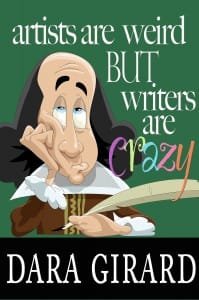 Please note that this series is written in fun. If you don’t like hints of sarcasm and hyperbole don’t read this series. If you find the title offensive, don’t read this series. However, if you understand that this is a great time to be a writer of fiction and feel like a lone happy person in a tsunami of fear, read on. (special thanks to author/ artist Kimberly Van Meter for creating the cover for me)
Please note that this series is written in fun. If you don’t like hints of sarcasm and hyperbole don’t read this series. If you find the title offensive, don’t read this series. However, if you understand that this is a great time to be a writer of fiction and feel like a lone happy person in a tsunami of fear, read on. (special thanks to author/ artist Kimberly Van Meter for creating the cover for me)
I wasn’t going to start this series until September because it’s summer and I didn’t want to commit to this until the weather started to cool and I was forced to stay inside more. Besides, Dean Wesley Smith in his many great series like Killing the Sacred Cow of Publishing and his wife Kris Rusch in her series The Business Rusch have both basically said what I’ve thought on many different topics about the publishing/writing world. Then I read The Wall Street Journal article Kris mentions in a recent blog Slush Pile Truths, which I thought was hilarious until I realized that other authors took it seriously (not serious as in ‘I’m insulted’ but as in ‘He’s right’) that’s when I knew what I’d only suspected: Writers are crazy!
But I still wasn’t ready to put my thoughts out there until I read Dean’s post where he expanded on what his wife said. These words resonated with me: “Writers, be artists…” That’s when I knew I needed to speak up. He’s right. Writers can learn a lot from artists.
Some Background
I grew up in a house with an artist. My mother painted a mural on the wall in my bedroom, I had handmade dolls, I didn’t just get notes in my lunchboxes I got mini masterpieces with cartoons and pictures. I didn’t need to buy subject dividers for my school binder, my mother created them for me (my friends were envious and wanted them too). My mother, a trained medical illustrator, also did abstract painting, created posters, and greeting cards. She made set design, puppets, dolls and whatever her creative mind thought of. Sometimes she sold her work. Sometimes she gave them away, so creative expression was nothing new to me.
From my earliest recollection I wanted to be a writer. I created a newsletter at age seven and started sending out my stories to New York editors at twelve (with every intention of getting published in two years). My plan failed, but I hung in for the thirteen years of needed apprenticeship before I sold my first book. However, when I finally entered the field as a published author I was amazed by the fear I encountered. I hadn’t experienced it because I’d been on the journey primarily on my own. I hadn’t joined critique groups or attended writing workshops and conferences.
I just wrote, submitted, wrote some more, and submitted some more. And when I say wrote I don’t mean just books or short stories but also poems, plays, essays, articles, ad copy, cards, gags and so on. I did this for years until I reached my goal of getting a novel published. I followed my mother’s example. At an early age she fell in love with art and experimented with different media and styles and created (for years) until she felt comfortable with her craft and expressing herself.
But I soon discovered that writers aren’t like that. Writers followed rules whether they made sense or not (no simultaneous submissions—yea right). Writers followed critiques (change the hero’s career from an accountant to an architect—why?) Writers followed style guides (only use Times New Roman or your work will get rejected—are you serious?). I saw wonderful creative people following arcane rules, constantly seeking validation and confusing art with commerce. I was surprised, but my mother was horrified! That’s when I saw the stark difference between how an artist thinks and how a writer thinks.
My Goal
Many people think success in publishing is about talent, luck and hard work. While these may contribute to success I’ve found the biggest contributing factor is attitude. Everything else flows from there. I’ve made a lot of mistakes along the way, but I’m still here because of my attitude. I have the ‘artist mindset’. I know that the only time my career stops is when I stop it. Not when someone else tells me it’s over. When I create my work, I stand behind it. I’m its biggest advocate. I don’t wait for someone else to tell me it’s worthy. I say it’s worthy first then look for people who agree. I’m a professional artist who creates with dignity and pride.
Read More
 Please note that this series is written in fun. If you don’t like hints of sarcasm and hyperbole don’t read this series. If you find the title offensive, don’t read this series. However, if you understand that this is a great time to be a writer of fiction and feel like a lone happy person in a tsunami of fear, read on.
Please note that this series is written in fun. If you don’t like hints of sarcasm and hyperbole don’t read this series. If you find the title offensive, don’t read this series. However, if you understand that this is a great time to be a writer of fiction and feel like a lone happy person in a tsunami of fear, read on.